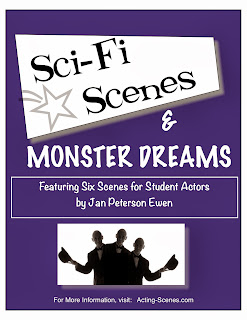An Interview with Cabaret Producer, Clifford Bell of Hollywood.
 |
| Clifford Bell and performer, Katey Sagal |
Performers and audiences alike are rediscovering the vibrant Cabaret experience, thanks in no small part to the inexhaustible efforts of Producer, Clifford Bell of Cabarabia. Join us for a fascinating interview with Mr. Bell on the state of health of the Cabaret today!
SNB - How would you define the “cabaret” these days?
CB - I have a very expansive definition of
"cabaret". Traditionally, the cabaret is defined as a live performance
in an intimate setting; a small room, under 100 seats generally where the
audience is close to the stage. In many people's minds, this sort of
"cabaret" is usually show tune-ish or "Great American Songbook"
- Broadway Revues or Gershwin/Cole Porter type stuff. However through the
years, the definition has evolved to have much more contemporary definitions -
political satires, stand up comedy, story telling, acoustic rock - all have a
place in how I define modern "cabaret".
SNB - When did
you form Cabarabia?
 CB - I've been doing what I do, pretty much for
over thirty years. I grew up in a house that introduced me to Broadway
Music and standards (The Great American Songbook) and I naturally gravitated to
doing live shows in small venues. I was in the room to see so many of the
greats when they were first getting rolling - early Bette Midler, Bernadette
Peters, Roseanne, Sandra Bernhard, Peter Allen, etc. Cabaret clubs were where a
lot of the greats got their start.
CB - I've been doing what I do, pretty much for
over thirty years. I grew up in a house that introduced me to Broadway
Music and standards (The Great American Songbook) and I naturally gravitated to
doing live shows in small venues. I was in the room to see so many of the
greats when they were first getting rolling - early Bette Midler, Bernadette
Peters, Roseanne, Sandra Bernhard, Peter Allen, etc. Cabaret clubs were where a
lot of the greats got their start.
Somewhere along the way, a friend said to
me, "You're like Lawrence of Cabarabia", and a concept was born. From
that point on, I started to use the term "Cabarabia" to describe the
lifestyle and "universe" of being a citizen of the nightclub world. In
the late 90's, I actually got the DBA and made it my business.
SNB - Can you describe your mission?
CB - I've always been most interested in giving
new talent practical experience. As a person who went to college to study
Musical Theater, I always felt the biggest flaw of the academic environment was
not being enough like the market place. As a producer in the cabaret world, I
try to create a melting pot where accomplished veterans can share the stage
with newcomers. That is always the underlying focus of my work.
SNB - What is your position
with Cabarabia?
CB - I'm it, Baby! It's all me. It's just
an umbrella for my activities and interests.
SNB - When did
you first become
interested in the Cabaret venue?
CB - I guess when I was in college studying
Musical Theater. I always felt that I wasn't a traditional enough type to
get the great roles in book shows, but the cabaret stage is the performer’s
canvas. They are the star of the show. Whatever the show is, they are the
leading man or woman by virtue of the nature of the medium.
SNB - What appeals
to you about producing Cabaret performances?
CB - To me, after all this time, what I do is the
ultimately most satisfying thing I know about. It is always creative and
always stimulating. My goal is to define someone at their most likable, most
interesting and build a frame around it. In some ways it's kind of a mystical
talent, but in some ways it's just knack I have for being able to find the right
"context" to present people.
SNB - Do you have a few favorite cabarets in the
US today?
CB - Tragically, the big ones in the major cities
are closing like wild fire. In the last year, the
most prestigious venues in New York - The Oak Room at the Algonquin
and Feinstein's at Loews Regency - both suddenly closed. The Rrazz Room in San
Francisco just closed. All of these places will reinvent themselves, but it was
a hard year for the high-end cabaret rooms.
SNB - Do you see a growing popularity in
the cabaret venue these days?
CB - Absolutely. I think the future of
cabaret is that young people are discovering it as a way to be seen. All the
TV talent shows create these gargantuan, vocally histrionic performances,
but the truth is, the place you get good, the place you get known, the place
you get discovered is still in the small rooms playing in front of real people
who care.
SNB - You are a performer. What is it about
performing in an intimate performance space that you enjoy?
CB - I've always had a love/hate relationship with
performing. I was a nervous performer. In my early career as a singer, I got to
the point where I needed an 8 piece band and a lot of distance to be doing
something that made me feel courageous enough to be onstage. I always
loved singing but I was deeply shy and it was unnatural to be onstage.









